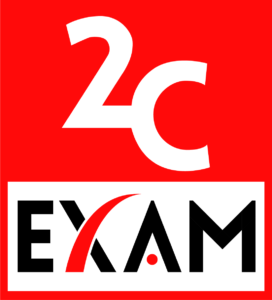According to the SFC Code of Conduct for Licensed Persons or Registered Persons regarding employee trading: licensed corporations/registered institutions (hereinafter referred to as companies) need to establish policies and inform employees in writing whether they are allowed to engage in personal trading in stocks, futures contracts, or leveraged foreign exchange contracts.
If the company allows employees to engage in personal trading or purchase securities, futures contracts, or leveraged foreign exchange trading contracts, the following is required:
Written policy outlining the conditions that employees must comply with when engaging in personal trading;
Employees must report all relevant accounts to management, including accounts of minor children and accounts in which the employee has a beneficial interest;
Generally, employees should conduct personal trading through their employer’s company or its affiliated companies;
If employees are allowed to trade personally through other brokers, copies of trade confirmations and account statements must be provided to company management;
Employee accounts and related accounts transactions must be recorded separately and clearly identified in the company’s records;
Management with no conflict of interest must supervise and review employee trading to prevent misconduct and ensure that it does not harm the interests of other clients.
In addition, a company may not knowingly trade securities or futures contracts for employees of another company unless it has obtained written consent from the other company.
Therefore, whether employees of Hong Kong licensed corporations/registered institutions can trade stocks mainly depends on whether their own company allows it, that is, the boss has the final say.
If allowed, it is not an immediate green light for trading stocks happily; employees still need to follow the company’s internal regulations. What internal regulations are usually in place?
Trade declaration and approval: Declare to the employer before making any transaction, and in some cases, obtain written approval from the company’s compliance department or supervisor before trading. This typically includes providing details about the securities, quantity, and price of the proposed transaction to ensure that the company understands the employee’s trading activity and prevents potential insider trading or conflicts of interest.
So, want to make a fortune in the stock market? Don’t forget to report to your boss first and get approval! Also, don’t hide your and your family’s trading activities!
Trading window periods: Trade within so-called “trading window periods.” These window periods typically begin after the company releases financial reports or other significant information to ensure that employees do not trade based on internal information.
So, have you heard any internal secrets? Don’t get excited! Never trade using this information; it is strictly forbidden!
Minimum holding period: Follow a minimum holding period, such as 30 or 60 days. This helps prevent employees from engaging in short-term trading based on internal information.
Bought stocks and want to sell them quickly? Don’t rush, take your time! Wait for 30 or 60 days before taking action.
Blacklist/restricted list: Prohibit or restrict trading in certain companies’ stocks, especially those related to the employer or clients. This helps prevent potential conflicts of interest and insider trading. Some stocks are off-limits; don’t touch them! Company resources are not for you to trade stocks with, and your trading activities must not affect the interests of the company and its clients; this is the bottom line!
Now, for a bonus question: if Xiao Mei is an employee of a Hong Kong asset management company, can she trade stocks? If so, what restrictions would apply?
-Xiao Mei may need to disclose and obtain approval from the company before engaging in personal trading.
-Xiao Mei may be prohibited from trading stocks held by the funds managed by the company to avoid conflicts of interest.
-Xiao Mei may need to follow a minimum holding period, such as 30 or 60 days, to prevent short-term trading.
-If Xiao Mei obtains non-public information about a company, she should comply with insider trading regulations and avoid trading while in possession of such information.
How can we help?
2CExam provides HKSI LE, IIQE, EAQE and SQE related exam preparation materials. We sell mock question banks for HKSI LE Papers 1, 2, 3, 5, 6, 7, 8, 9, 12 in Chinese and English; and bibles for HKSI LE Papers 1, 2, 6, 7, 8 in Chinese. We also offer 1 on 1 tutorial services. Besides, we have also made free tutorial videos for HKSI LE Papers 1, 2, 6, 7, 8, 12 and posted on public channels such as Youtube/ Bilibili/ Tencent/ Iqiyi. 2CExam has been an exam training expert for years. Should you need any help please visit www.2cexam.com or contact us through:
Phone +852 2110 9644 Email: [email protected] Wechat: hk2cexam WhatsApp: +852 9347 2064
Please support us by leaving comments and likes if you think this article helps you!
You can scan or click on the QR codes to visit our social media.
Latest Article
Categories
過往文章
Contact US
-
Phone:
+852 2110 9644
-
Email:
-
WhatsApp
+852 9347 2064
-
WeChat
hk2cexam
Interesting Articles
What is the Use of an HKSI Notification of Result and Certificate? Do I Need to Submit Both for SFC/HKMA License Application?
HKSI’s notification of results and HKSI certificate are two different kinds of proof. The Hong Kong Securities and Investment Institute is responsible for organizing examinations and issuing certificates. Therefore, the notification of results and certificates are issued by HKSI. However, passing the HKSI LE exam and being issued a certificate is not necessarily related. Anyone…
Can a Masters degree graduate in Management, literature subjects graduate, top up degree graduate in finance and law or associate degree holder waive some of the HKSI LE securities exam papers?
Earlier we shared that there are some circumstances where students who wish to join the industry as securities practitioners can possibly be exempted from certain exams based on their academic qualifications and/or work experience. If you meet certain academic and/or work experience requirements, students may not have to take HKSI LE Papers 7-12. In other…
How can I verify the identity of past insurance brokers and insurance agents? How to check the insurance intermediary license records expired before September 23, 2019?
Where can I verify the identity of insurance brokers and insurance agents? For information on insurance intermediaries that are still valid after September 23, 2019, or newly applied after that day, you can find them on the public search on the website of Insurance Authority: https://iir.ia.org.hk/#/index The development history of insurance brokers and…
Can a holder of an original SFC type 1 license be a type 4 and the type 9 license R.O.?
Why do fund managers/asset management companies need to obtain a Type 4 license? There is a type 1 regulated activity (Dealing in Securities) license holder who has many years of experience. This person has passed the Paper 6 of the Licensing Examination for Securities and Futures Intermediaries (HKSI LE). Can he become the RO responsible…
What is the difference between an insurance agent and an insurance broker?
Isn’t every business that sells insurance policies called an insurance company? Can an insurance broker mean both an individual and a company? What are the main differences between insurance brokers and insurance agents? An insurance broker (Broker) selects suitable insurance products on behalf of the client. It can refer to an individual or a company.…
What is the difference between a licensed corporation and a registered institution?
Which licensing exam should a bank staff patake in? Is it regulated by the SFC or HKMA? What does it mean by the commonly mentioned term “SFC license”? The Securities and Futures Commission, also known as SFC, is the statutory regulator of the securities industry in Hong Kong.The Securities and Futures Commission was established…
What is the difference between an estate agent and a real estate salesperson?
Should I take EAQE or SQE to get into the real estate industry? The EAQE/SQE real estate examination result itself does not mean a license Passing the EAQE/SQE exam is just one of the conditions for applying for a license. Passing the exam does not mean obtaining a license, nor can you start your real…
How long is the validity period of the EAQE/SQE license?
Do I need to renew my license every year? Where should I apply for a license renewal? Huh? Isn’t the EAQE/SQE test result a license?! Passing the EAQE or SQE is one of the licensing conditions for obtaining a real estate agent/salesperson license. The EAQE and SQE exams are held by the Institute of Professional…
How long is the IA license valid for?
Do I need to renew my license every year? Where should I apply for a license renewal? Isn’t the IIQE exam score a license?! Obtaining passing results in the IIQE (Insurance Intermediaries Qualifying Examination) held by the Institute of Professional Education and Knowledge (VTC PEAK) is one of the requirements for applying for an insurance…
How long is the SFC license valid for?
Do I need to renew my license every year? Where should I apply for renewal? Will the SFC license become invalid? We often hear people mention the 178 license. What does that mean exactly? In fact, “178 license” is a common misnomer. 178 does not refer to a license, but a combination of exam papers…







